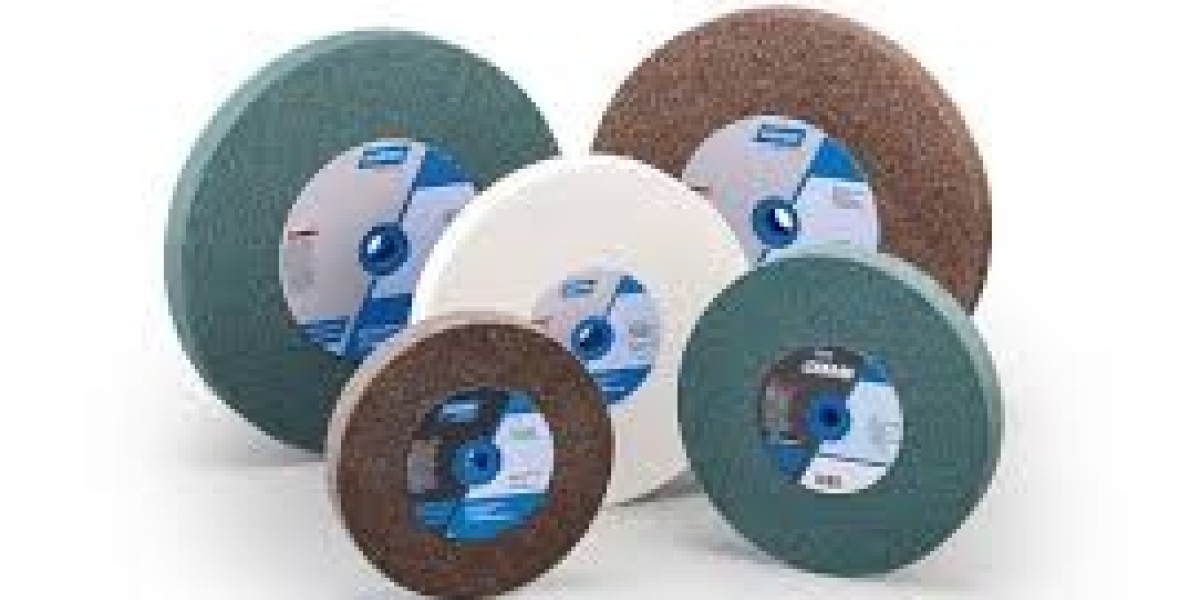Abrasive grinding wheels are fundamental tools in various industries, essential for shaping, finishing, and polishing workpieces with precision. These wheels consist of abrasive particles bonded together, forming a cutting edge that removes material from the workpiece surface. Here, we explore the significance, types, and applications of abrasive grinding wheels.
Significance of Abrasive Grinding Wheels
Abrasive grinding wheels offer several crucial advantages:
Material Removal: Abrasive grinding wheels efficiently remove material from workpieces, shaping them to precise dimensions and surface finishes.
Versatility: With a wide range of abrasive materials and bonding agents available, abrasive grinding wheels can accommodate various materials, including metals, ceramics, and composites.
Surface Finish: Well-designed abrasive grinding wheels contribute to smooth surface finishes, meeting the stringent quality standards of modern manufacturing.
Precision Machining: Abrasive grinding wheels enable precise machining operations, ensuring tight tolerances and dimensional accuracy in machined components.
Types of Abrasive Grinding Wheels
Abrasive grinding wheels come in diverse types tailored to specific applications and materials:
Aluminum Oxide Wheels: Aluminum oxide wheels are versatile and commonly used for grinding steel, ferrous metals, and non-ferrous metals. They offer excellent durability and performance across a wide range of applications.
Silicon Carbide Wheels: Silicon carbide wheels are suitable for grinding non-ferrous materials such as aluminum, brass, and titanium. They are known for their exceptional hardness and heat resistance.
Diamond Wheels: Diamond wheels utilize synthetic diamonds as abrasive grains, making them exceptionally hard and durable. They are ideal for grinding hard materials such as carbides, ceramics, and glass.
CBN Wheels: Cubic Boron Nitride (CBN) wheels offer high abrasion resistance and thermal conductivity, making them suitable for grinding ferrous materials like steel. They are particularly effective for grinding hardened steels and high-speed tool steels.
Grinding Segments: Grinding segments are integral components of abrasive grinding wheels, featuring abrasive grains bonded together by a matrix material. They come in various shapes and sizes, each suited to specific grinding tasks and applications.
Applications of Abrasive Grinding Wheels
Abrasive grinding wheels find extensive applications across various industries, including:
Metal Fabrication: Abrasive grinding wheel are widely used in metal fabrication for precision grinding tasks such as surface grinding, cylindrical grinding, and tool sharpening.
Automotive Manufacturing: In the automotive industry, abrasive grinding wheels are employed for machining engine components, transmission parts, and brake components to tight tolerances and surface finish requirements.
Aerospace Engineering: Aerospace manufacturers utilize abrasive grinding wheels for machining critical components such as turbine blades, landing gear, and structural components, ensuring precise dimensions and surface finishes.
Precision Tooling: Abrasive grinding wheels play a crucial role in the production of precision tools and dies, providing the accuracy and surface finish required for high-performance tooling.
In conclusion, abrasive grinding wheels are indispensable tools for achieving precision machining in various industries. By selecting the appropriate type of abrasive grinding wheel for specific applications and materials, manufacturers can optimize their grinding processes, enhance productivity, and ensure the highest quality standards in their machined components.








